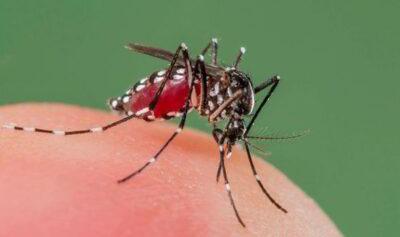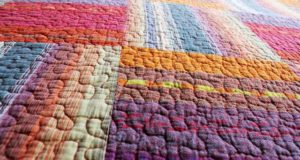It is that time of year when pesky mosquitoes, clinging ticks and other insects start to become a nuisance. We all try to find more natural ways to be environmentally friendly but still keep those bothersome bugs away from us. After all, who wants to run to the store to buy endless amounts of chemically infused insect repellents when you can make your own? Below are a few simple and natural insect repellent recipes you can make at home yourself.
1. A recipe from Africa
In Mali, the combination of neem cream, shea butter and soap is a traditional preventative for mosquito bites. The recipe is easy to make with simple ingredients:
- 3 large handfuls of neem leaves
- 2 pounds of shea butter
- 1 bar of soap (grated)
- 1 liter of water
Boil the neem leaves until the water turns green. Strain out the leaves. Add the grated soap to the hot water slowly, and stir until it is all dissolved. Add the shea butter gradually as you stir and pour into an airtight container. Let it cool.
2. A recipe with essential oils
If you wish to use essential oils, the most recommended ones for insect repellent are citronella, cloves, lemongrass, cedar, eucalyptus, rosemary, mint and lavender. For the next recipe, you will need natural witch hazel, boiled water and, if wanted, vegetable glycerin. The more oil you use, the stronger the smell.
- 8 ounce dark-colored spray bottle (better for essential oils)
- 4 ounces of boiled or distilled water
- 1/2 teaspoon of vegetable glycerin (optional)
- 30 to 50 drops of essential oils
- enough witch hazel to top up the spray bottle
Mix together and place in a cool area.
New “Survival Herb Bank” Gives You Access to God’s Amazing Medicine Chest
3. A recipe with herbs
To make insect repellent from herbs, you can use fresh herbs or dried ones. The best herbs to use are peppermint, spearmint, lavender, citronella, lemongrass and cloves.
- 1 spray bottle
- 1 cup of water
- 3 to 4 tablespoons of herbs
- 1 cup of witch hazel or rubbing alcohol
Bring water to a boil and add herbs. Use more than one herb for best results. Mix well, then cover to cool. Covering is important. Once cool, strain the herbs out and add witch hazel or rubbing alcohol. Place in a spray bottle and store in an area like a fridge where it is cool.
Story continues below the video
4. A recipe with vodka
If you can’t find witch hazel but have vodka, you can use the drink to make a simple insect repellent.
- 2 tablespoons of witch hazel or vodka
- 2 tablespoons of oils such as almond oil, olive oil, neem oil or grapeseed oil.
- 1/2 teaspoon of vodka to help preserve (if you haven’t already used it)
Mix well and put in a spray bottle.
5. A recipe dubbed “Vinegar of the Four Thieves”
It is said the following recipe was used by thieves during the time of the black plague. It worked, they lived, and it was called “Vinegar of the Four Thieves.” It keeps everything, including ticks, away. It stinks when first applied, but the smell fades quickly.
- 32 ounces of apple cider vinegar
- 2 tablespoons of dried sage, lavender, rosemary, thyme and mint
- 1 glass jar with airtight lid big enough to hold mixture.
- Water to dilute mixture
Place herbs and vinegar in glass jar. Make sure you seal the jar tightly and place somewhere you will see it every day. Shake the mixture once a day for two or three weeks. After this time period, strain the herbs out, and place the liquid in the fridge. The fridge is the best place for this mixture. When needed, fill half of a spray bottle with the mixture and the other half with water. Now it is ready to use on your skin.
The Hidden Secrets Of Making Herbal Medicines…Right At Your Fingertips!
It has antiviral and antibacterial properties.
There have been many studies done on the effectiveness of natural insect repellents and their ingredients. They are effective to a point, but it depends on the person and amount of herbs, oils and other components in the mixture. If a mixture doesn’t seem to work, it may just need tweaking. Studies have shown lemon eucalyptus, geranium oil and citronella are the top ingredients to use in natural repellents. Other super-effective ingredients include fennel, clove oil, thyme, celery extract and garlic.
Keep in mind: There are warnings, even though the mixtures are made from natural ingredients. You should always consult a doctor before using essential oils when you are pregnant, nursing or using on a small child. It is a good idea to do a test patch of all homemade repellents to make sure you do not have an allergy or reaction to the mixture. As always, label all spray bottles and keep in a safe area, out of reach of children.
As with all things, do some research to see what options you have and to gain more ideas of what herbs or oils to use. Making your own repellent saves money and is healthier for you. There is no need worry about DEET or other chemicals getting into your system. Try something natural and new while enjoying the outdoors.
What are your favorite all-natural insect repellents? Share your tips in the section below:
Harness The Power Of Nature’s Most Remarkable Healer: Vinegar
 Off The Grid News Better Ideas For Off The Grid Living
Off The Grid News Better Ideas For Off The Grid Living




